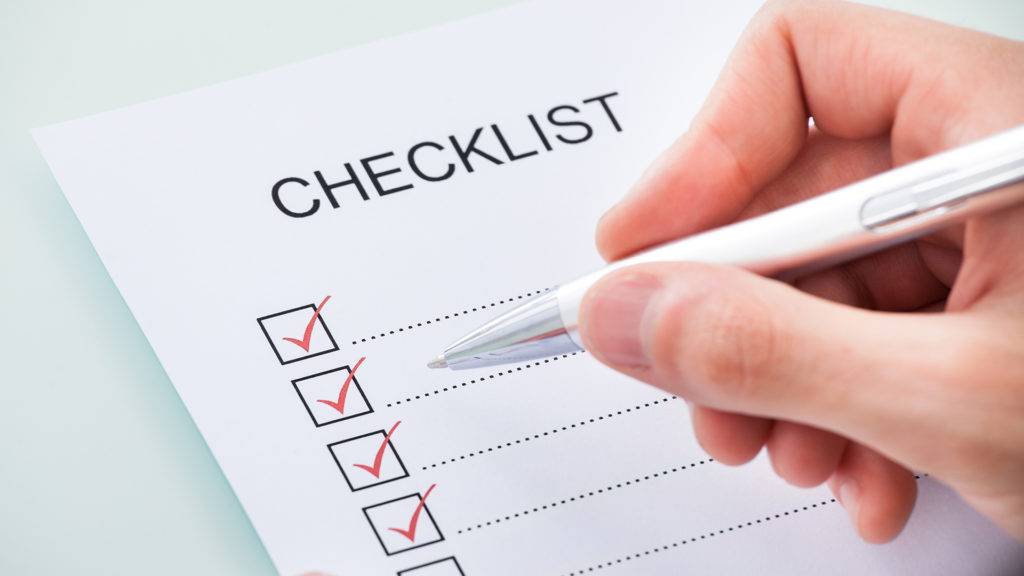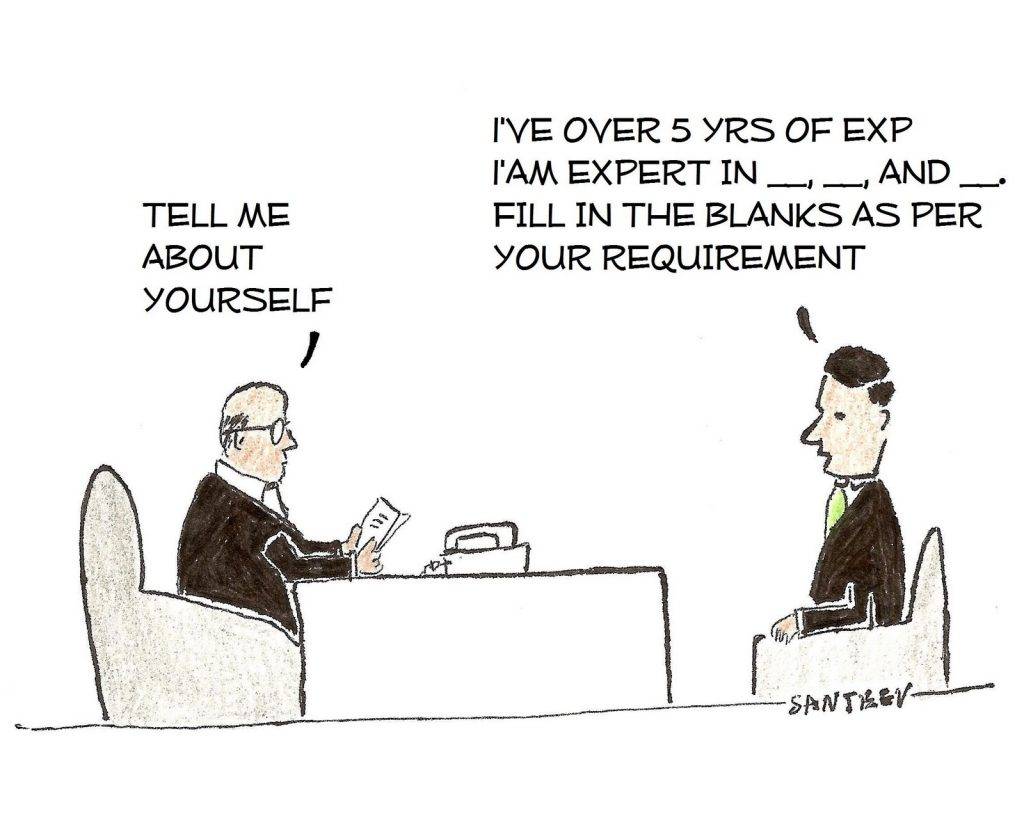Doing Interview Checklists the Right Way Example [Edit & Download]
As a human resource specialist, part of your job is to make sure every detail is exhumed from the applicant. Yes. Every single piece of evidence that could help you determine if the person is qualified for the job post. Attention to detail is critical in this line of work.
To play the role of a recruitment specialist, you need to equip yourself with the necessary skills and abilities. You also need to be very precise in throwing questions and determining whether the person is telling the truth or not. As a precaution, you should use a checklist as a guide throughout the interview.

What Is an Interview Checklist?
The most anxious feeling—aside from standing at the edge of a tall building 1000 feet above the ground—is when you are in a room alone with the recruitment specialist in a job interview. That was quite a vivid simile, I might say. But, honestly, most of us who have been through a job interview has also, probably, had that tense moment. But as the experts say, confidence is the key.
One way to fight this interview fright is to prepare an interview checklist. For an applicant, an interview checklist could be defined as a list that contains a series of questions and planned answers as well as the appropriate responses and behavior in an interview. A human resource specialist, on the other hand, could still have slightly the same definition about what an interview checklist is.
For the latter, it is a record of the questions to be thrown at the applicant. It could also work as well as a sheet to jot down the responses. They use this as a basis to assess and determine the interviewee’s suitability for the job. An interview checklist is a device to make sure that the interview is successful and to avoid missing out on important details that could be of vital significance.

How Important is an Interview Checklist?
This question might sound a little bit silly, but it is something that bothered me while writing this article so I might as well dig a little deeper on it. To provide you, my dear readers, a more vivid explanation of how helpful an interview checklist is, I have conducted an interview with one of my friends in the human resource industry whose identity I cannot divulge for confidentiality purposes. What I will be presenting are the highlights of our conversation.
An interview checklist is somehow considered as the go-to cheat sheet by a recruitment specialist. It provides you a guide for a better flow of conversation and to avoid repeating the same questions over and over again. There is also a funny side in bringing a checklist during an interview; a little experiment was performed to see how applicants would react upon the sight of a paper on hand. At times when the interview’s checklist is visible, and you look at it from time to time, the applicant seems a little intimidated and stiffer. On the other hand, without a checklist, the applicant appears more confident and expressive.
While it is good to have a conversational approach and keep a friendly tone, it is not an effective way to conduct an interview in hiring the best candidates. Because those who can compose themselves under pressure and maintain logical and straight responses are the ones, who are most likely to be successful and passionate about the job. With an interview checklist, you can prepare questions that are most relevant while at the same time, focus on the behavior and attitude of the applicant.
Another use of an interview checklist is that you can finish the interview on time once all the questions are asked, and you have enough information to come up with a decision.
![]()
What to Remember Before, During, and After an Interview
This part of the article is where you will learn about the things to do before, during, and after conducting an interview — it is indeed a tedious and simultaneously rewarding job to be a recruitment specialist. Apart from the truth that you are doing your company a favor by selecting the best candidates, you also learn different things from what the applicants are sharing. However, before getting into that frenzied feeling, let us talk about the things to do in an interview.
Before the Interview
- Understand your objective. Your job is to find the best candidate suitable for the position. You have to exhaust all your effort to determine who is the best among the applicants. You have to understand the needed qualifications for the job, and it isn’t just anyone with a flamboyant conversational personality. A person may be good at handling dialogues, but it might not be the attitude and requirement you are looking for.
- Create an interview checklist. Write down the questions that you want to ask during the interview and separate behavioral inquiries from situational ones as well as those that would assess the candidate’s experience and skills concerning the job. Match each question with the requirements for the said position.
- Review the candidate’s resume. It is best to have a short preview of what to expect from the applicant. Conduct a brief review of their resume. This is a technique to test the accuracy and consistency of the applicant’s answers because not everything written on the resume is precisely what the applicant portrays.

During the Interview
- Compose yourself. Upon entering the room, greet the applicant and invite them to sit down. Compose yourself and look confident. It is essential that as the interviewer, you should sound more relaxed than the other person in the room.
- Ask the questions from your checklist. Once you have started the conversation with your short introduction, start asking questions in ascending order; beginning the most basic questions. Do not focus your eyes on the checklist. Instead, maintain eye contact with the applicant to see the sincerity of their responses. Also, try not to be too reliant on the interview checklist questions. If you think there is a need for a follow-up question, do so to squeeze out more information that could prove useful.
- Build a connection. This technique is vital to gaining the confidence of the candidate. Also, being conversational while at the same time, sticking to your principles is a crucial factor for an effective interview. Once a candidate is confident, you will know if they are hiding something from you if there are times when you will notice some silence and hesitations upon throwing surprise questions.
- Pay attention to every detail. Sometimes, there are days when we have personal problems which might affect our work. Don’t let these distractions keep you from doing your job. Leave your issues where they belong and pay attention to what the applicant is saying. You must pick up every detail and check if they are consistent from the beginning.
After the Interview
- Review the results. Once you have made the complete assessment, it is time to review what transpired during the interview. This time, you need to set aside any biases that you have in mind which might have built up during the meeting. You need to remember that your decision is very crucial to your company’s future. If you hire the wrong person, you will lose a considerable amount of money in both training and salary — choose wisely. Decide not from your gut feeling but from the data you gathered during the interview and the behavior that the applicant showed.
- Provide feedback. Every applicant deserves to know the result of the interview. It is helpful even for those who have not been qualified to assist them in improving their future endeavors. It is also crucial that you maintain honesty and integrity at the same time. Be impartial with the result; if the candidate passed, congratulate them for a job well done. If they failed, show your appreciation for trying their best.
What Is the Best Way to Write an Interview Checklist?
“There is no noble task that is easy,” I always believe this line and use it every time I encounter something difficult and outside my comfort zone. Human as we are, we have this instinct to survive and somehow, somewhere, hidden in every spec of our genes, there are built-in spaces of self-preservation and a will to battle every single challenge.
The same view in life could be used in our day-to-day activities, even when dealing with things at work. As a recruitment specialist, it is a typical scene to encounter people with different cultural orientations. Sometimes, the most challenging part is trying to decipher someone’s personality and figuring out the right approach. Keep in mind that there is no set standard manner of establishing a conversation with somebody since what may seem appropriate for you could be interpreted differently by the other person.

For example, handing someone an object with your left hand may be perfectly fine in other countries. However, in India, they try to avoid using that particular hand when delivering a gift as it is seen to be rude. They consider the left hand dirty since most of the time you use it in nasty activities like when you answer the call of nature. To make sure you are safe from any trouble, practice precaution. Be careful when dealing with things you are unfamiliar with and do a little research to keep you informed — the same method should be applied when writing an interview checklist.
Interview checklists are considered vital in ensuring the success of the recruitment process. You don’t only need to learn how to ask the right questions but also when to ask them. So the predicament should become finding out the best way to write an interview checklist… unless of course, we have the steps that you need.
- Study the qualifications. This is the first thing that you need to do to inform yourself of the things that should be found in a candidate. Characteristics such as educational attainment, work experience related to the job, qualifications, and other certifications, etc., can help you determine if the person is the type of employee you’re looking for. Remember that every stage is crucial in searching for the right candidate, so doing your best is vital.
- Ask operational and behavioral questions. Applicants tend to rehearse for the interview with the basic things they know about it. A common tradition when it comes to the recruitment process is that the interviewer asks questions based on the resume. They would ask about your educational background, from what school you graduated and when. Another would be your work experience, as well as any achievements you may have had. It is best to surprise your applicant by using a different approach to see how well they would do during surprises.
- Write the inquiry in a reverse manner. Since it is a common method to ask about the applicant’s first taste of work experience, why not try writing questions about their latest. As what I have observed, applicants tend to practice their responses when it comes to the things written on their resume from their first job to the most recent and so they memorize their responses. Asking about the recent one first would jumble their mindset, and you will notice a blank and crumbling applicant trying to find the right responses. The best ones are those who stand up to the pressure and still look steadfast.

The interview checklist is just one of the many ways to make the recruitment process a success. It is a simple list to guide you, the interviewer, in choosing the best candidate most suited for the job. However, never underestimate what it can do because most failures come from simply ignoring how things work.
No matter how difficult the job may seem, always be positive, and appreciate the value of your work. Knowing what questions to ask during an interview does not only benefit you and the company, but you are also providing an opportunity to help the applicant get the job they have been longing to have.


